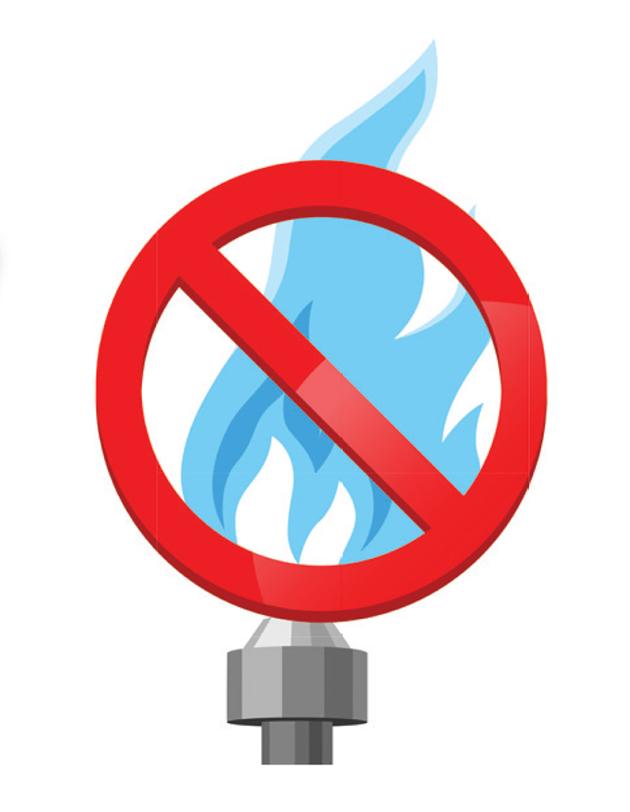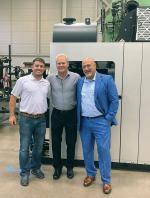CHICAGO — A proposed phaseout of natural gas water heaters and boilers in Los Angeles, San Bernardino, Riverside, and Orange counties in California had local dry cleaners worried about what such a measure would mean for the future of their businesses — and in some cases if their business would have a future at all.
However, thanks to the efforts of area dry cleaners, business organizations and the California Cleaners Association (CCA), recommendations were made that would lessen the burden and push back the compliance dates.
The measure, Proposed Amended Rule (PAR) 1146.2 by the South Coast Air Quality Management District (SCAQMD), is designed to combat nitrogen oxides (NOx) emissions from large water heaters, small boilers and process heaters. In its proposal, the SCAQMD estimates that more than 1 million units would be impacted, resulting in 5.6 tons of NOx emissions being reduced per day.
The proposed rule, as it was originally written, would apply to all commercial buildings and multifamily units — new and existing. Compliance would be mandatory by 2026 for new buildings, by 2029 for existing buildings.
For such a sweeping proposal, there was a lack of input from those who would be most affected, according to a release from the Los Angeles County Business Federation (BizFed), which stated: “Agency staff met with only a limited pool of stakeholders, meaning this rule was written with little feedback from impacted community members.”
“One big concern is that there are just a lot of folks who are unaware this is coming up,” says BizFed Director of Advocacy Sarah Wiltfong. “That’s why we sent out an alert, and that’s why we were trying to raise awareness about it.”
The proposed phaseout’s scope has many businesses — including dry cleaners — worried that such a far-reaching measure would put an undue burden on them. They argue that the cost of replacing and running this type of equipment, if it were even possible to do it in certain cases, would hurt or destroy their business.
“In order for them to retrofit and install some of these units, it could easily run, at a minimum, $200,000,” says Wiltfong, “and one dry cleaner told me it would be closer to $800,000 to retrofit and install. And then on top of that, that doesn’t even include the monthly utility payments, which will probably be considerably more expensive.”
Fortunately, after meeting with the CCA and making some drycleaner site visits in March and April, the SCAQMD recommendation was amended to push back the compliance deadline to 2033 for the high-temperature units typically used by dry cleaners.
So, while the rule, if approved, would require dry cleaners to eventually transition to zero-emission equipment, the SCAQMD is proposing extended timelines, certain exemptions, and potential financial assistance to help ease the burden on these small businesses. A technology assessment scheduled in 2028 would also help determine if additional adjustments are needed before the requirements would take effect.
These amendments came about largely because of the arguments the CCA and dry cleaners made to illustrate the burden such a rule would put on them, not only because of the cost but also the fact that many dry cleaners would simply be unable to comply.
“One of the things specifically pointed out was that, in many cases, dry cleaners don’t own their property,” says CCA President Toran Brown. “They would have to potentially go hat in hand to their landlord and say, ‘We need these major electrical upgrades made to our space to accommodate this type of equipment.’”
“If a landlord has to retrofit a huge part of the building to accommodate a business, they may find that it’s not worth it on their end, and may not renew their lease,” says Wiltfong. “One member shared with me that he had concerns that his landlord would not renew his lease, even though he had been there a number of years, because the retrofitting would not make sense for the building.”
Another dry cleaner had pointed out to Brown that they would be unable to switch from natural gas to electric boilers because the local electric utility did not have the capacity in his area to run enough power to the building.
While industry and advocacy groups were able to delay consideration of this measure for dry cleaners and, they hope, refine it to take some of the onus off them, it’s an ongoing battle, Brown says, noting that when such actions are taken in Los Angeles, they tend to trickle down throughout the country over time.
“It’s worth pointing out that whether it’s this issue, the single-use poly ban that continues to come up in different forms, or other items, these are all issues at the municipality level, and that’s where the challenge is,” Toran says. “It would be easier to keep an eye on statewide initiatives, but when you have things that are going on in Los Angeles and Berkeley, where things are happening at a very local level, trying to stay on top of all that is very challenging.”
Because of this, Brown urges dry cleaners across the nation to be aware of this type of legislation in their areas and get involved with both their local and national representatives and organizations to make sure their viewpoints are heard.
“A lobbyist friend of mine said, ‘Look, if you’re not at the table, you’re on the menu,’” Brown says. “We have to find ways to ensure that we’re getting representation before these things become law and we’re impacted.”
The SCAQMD has called a hearing on this matter for June 7. For more information, click HERE.
Have a question or comment? E-mail our editor Dave Davis at [email protected].















